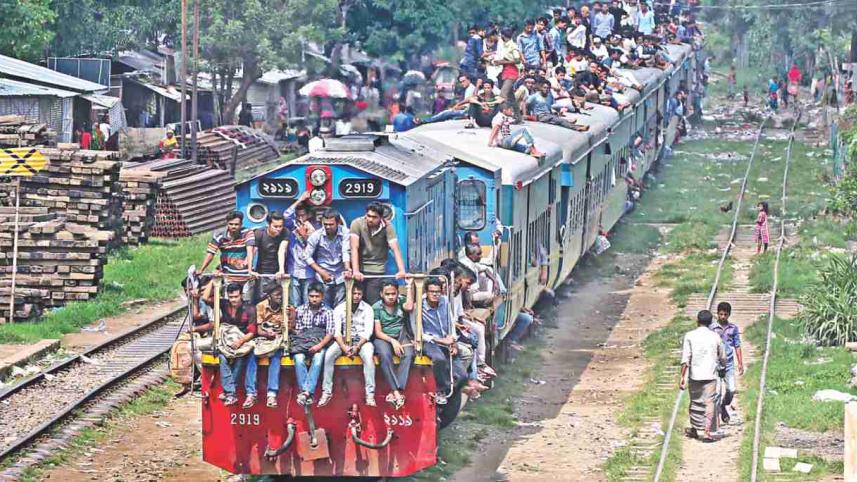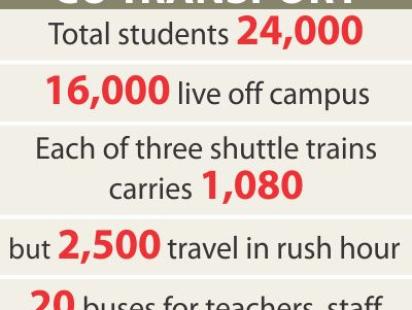CU students face acute transport crisis, risk

Several thousand students of Chittagong University, who travel by the shuttle train between the university and Chittagong city every day, are facing an acute transport crisis, thanks to indifference of authorities.
The usual hour-long journey by shuttle trains that often carry passengers double or triple their capacity has turned into a nightmare, said students.
The situation has worsened with the number of the cars of the trains reducing.
CU is located in Hathazari upazila, 22km off the city. As a result, most of the 16,000 students, out of the total 24,000, who live outside the campus, have to solely depend on the shuttle trains. In addition, the resident students also need to take the train to the city.
However, there are 20 buses for carrying teachers and staff.
The shuttle train service was launched in 1980 in cooperation with Bangladesh Railway, and each student has to pay Tk 820 during admission and Tk 579 annually from the second year to the end of the master's programme as the transport fee.
At present, CU has three shuttle trains, including a Diesel Electric Multiple Unit (Demu) train. They run eight times every day between the university and the city.
Each train, with six to seven compartments, sometimes fewer, seats 1,080 students but most of the time, more than 2,500 travel in one train during the rush hour.
As a result, many students travel standing in the cars, sitting on the spaces around the locomotive or the stairs, and some sitting on the rooftop, risking their lives.
Sabikunnahar, a student of Bangla, was killed while getting on a moving train at the university station in 2006. After two years, another student Mahmudul Hasan Mamun lost his life after he jumped off the roof of a shuttle train at Sholoshohor station in the city.
"Most of the time we miss the train because it is packed. During the rush hours, even the roof is full of passengers," said Mehedi Hasan, a fourth-year student of accounting and information system.
Sometimes getting a space inside the train does not mean it is the end of sufferings, especially for female students.

"I often feel sick due to the jostling, heat and body odour during summer. Sometimes it becomes difficult to breathe freely as every corner of the train is full," said Moumita Nandy, a second-year political science student.
Many other female students echoed her.
To avoid the hassle in the shuttle train, many students take buses to the city. But the only bus service "Tori" that runs on the route takes much time and money, said students.
Prof Abul Manchur, president of CU Teachers' Association, said the trains were inadequate compared with the number of students. He emphasised the expansion and modernisation of the train service to mitigate their sufferings.
Vice Chancellor Iftekhar Uddin Chowdhury said, "We are well aware of the problem. It cannot be solved immediately because it needs a long-term planning."
He sought the government's cooperation to arrange funds to introduce an alternative transport service, apart from the trains, for students.




 For all latest news, follow The Daily Star's Google News channel.
For all latest news, follow The Daily Star's Google News channel.
Comments